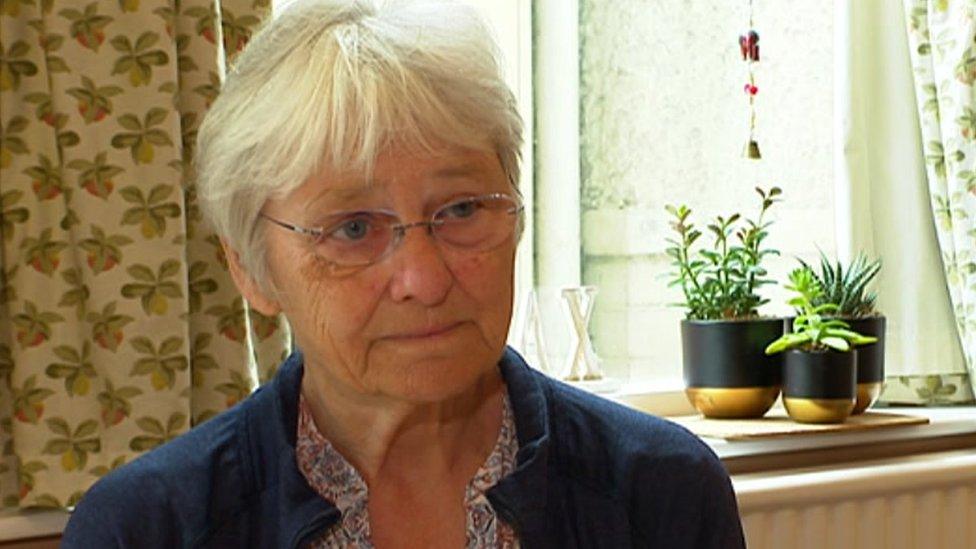Concerns at rise in suspected drugs deaths in Birmingham
- Published

Several deaths have been related to N-desethyl Isotonitazene, hospital consultant Dr Mark Pucci said
A charity says it's extremely worried about an increase in the number of suspected drug-related deaths in Birmingham in the past two months.
More than 30 people died in the city in June and July and many deaths have been linked to a new synthetic drug.
Dr Mark Pucci, toxicology consultant at University Hospitals Birmingham trust, says opioid N-desethyl Isotonitazene is 20 times stronger than drug fentanyl.
Megan Jones, from drug support charity Cranstoun, said it was concerned.
"It could get far worse," she said.
The BBC has been told the drug is mixed with heroin and users are not aware of what they are taking.
Dr Pucci said there had been several cases of people needing hospital treatment and deaths related to it.
Similar drugs were used to "increase the potency of heroin and in some cases replacing it all together", he added.

Dr Judith Yates said there had been a higher than expected number of drug deaths in Birmingham in June and July
Birmingham usually averages about eight deaths in June and July from heroin overdoses and the same from other drugs, said Dr Judith Yates, who collates data about drug deaths in the city.
If the 24 excess deaths were found to be due to this new drug, it would be three times as many people dying as expected, she added.
Two of the deaths under investigation by the coroner happened at the Carnegie Centre, a hostel in Lozells, on 15 July.
A woman aged in her 40s and a man in his 50s were found dead by police officers.
Sources say other deaths are believed to relate to the Perry Barr area and one patient was believed to have been in a critical condition in hospital.
A spokesperson for West Midlands Police said it could not comment on the coroner's investigation into the Lozells deaths.
Life-saving treatment
The force would continue to liaise with the coroner about unexplained drugs deaths, the force added.
The recent increase in use of synthetic opioids was fuelled by the destruction of the poppy harvest in Afghanistan, which provided most of the UK's heroin, Ms Jones added.
"We are also concerned that this could find its way into other drugs like ketamine and cocaine where people have a low tolerance to heroin," she said.
Concerns have also been raised the potentially life-saving Naloxone treatment for drug overdoses has been taken off police officers in the midst of the spike in casualties.
The region's former police and crime commissioner David Jamieson said he was "very disappointed" the force was considering taking it away.
West Midlands Police said Chief Constable Craig Guildford had commissioned a review of its use and, as much of the existing stock was past its expiry date, it had been withdrawn while the review was carried out.

Follow BBC West Midlands on Facebook, external, Twitter, external and Instagram, external. Send your story ideas to: newsonline.westmidlands@bbc.co.uk, external
- Published1 August 2023

- Published29 June 2022
